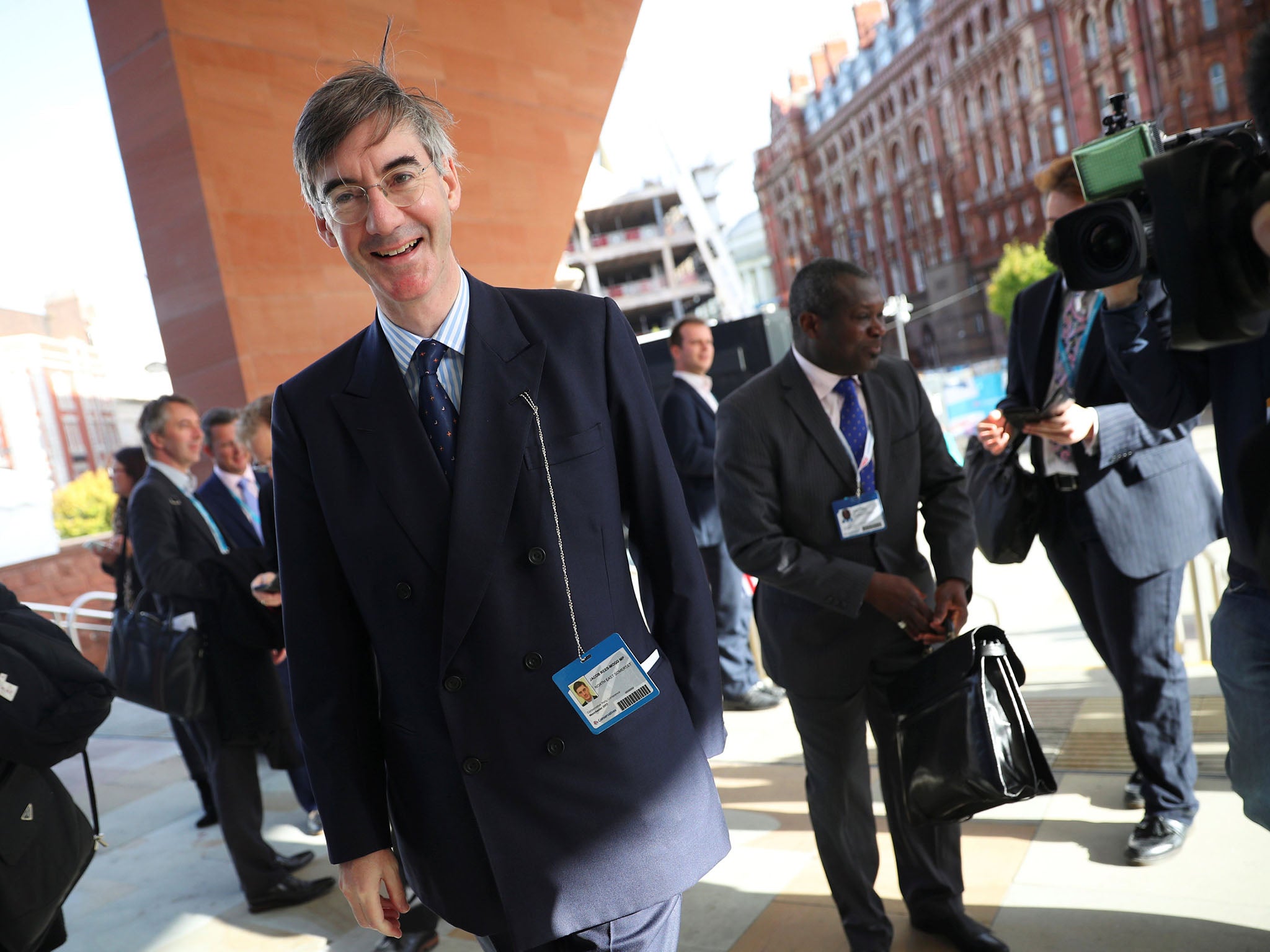Like it or not, there is one trait that unites Jeremy Corbyn, Jacob Rees-Mogg and Boris Johnson, and it explains their popularity
When did a trio previously seen as the most unlikely of leaders come within touching distance of No 10?


Your support helps us to tell the story
From reproductive rights to climate change to Big Tech, The Independent is on the ground when the story is developing. Whether it's investigating the financials of Elon Musk's pro-Trump PAC or producing our latest documentary, 'The A Word', which shines a light on the American women fighting for reproductive rights, we know how important it is to parse out the facts from the messaging.
At such a critical moment in US history, we need reporters on the ground. Your donation allows us to keep sending journalists to speak to both sides of the story.
The Independent is trusted by Americans across the entire political spectrum. And unlike many other quality news outlets, we choose not to lock Americans out of our reporting and analysis with paywalls. We believe quality journalism should be available to everyone, paid for by those who can afford it.
Your support makes all the difference.The year is 2015. Boris Johnson and Jacob Rees-Mogg are backbench MPs. One is best known for having a nanny to look after him; the other for looking very much like he needs one.
Down the road, a bloke called Jeremy Corbyn is addressing a sparsely attended rally, where he is angrily highlighting the plight of manhole covers in Paraguay.
In the pub, you have just predicted that in less than three years these three will be the bookies’ front-runners to become the next prime minister of the United Kingdom of Great Britain and Northern Ireland.
Silence falls, followed by nervous laughter.
After all, Corbyn is a veteran but mostly unknown backbencher and the two Tories more likely to be seen on Have I Got News For You than Question Time – comedy shows for MPs dismissed by some as political clowns.
Fast-forward three years – skipping past a general election, multiple leadership contests and something about the EU – and the “clowns” are lining up to take over the circus. The current ringmaster is somewhat indisposed, entangled firmly in the canopy, desperately trying to unravel herself while telling a flock of bemused pigeons that trapeze artist means trapeze artist and she will make a success of it.
Across the aisle, the shell suit-wearing, jam-making, rally-rousing 68-year-old has seen off the attack of the suited clones and is level with Messrs Johnson and Rees-Mogg in the egg-and-spoon race to Downing Street.
In their unexpected popularity, they are not alone. On radio shows, television channels and in tinnitus clinics around the country, a millionaire former banker in a pin-stripe suit gives voice to the anger felt by millions of working-class people in England’s heartlands. Across the Atlantic, a billionaire property mogul New Yorker is swept to power as the voice of blue-collar America.
How did this happen? When did a trio previously seen as the most unlikely of leaders come within touching distance of No 10?
There is not much, in truth, that unites Boris Johnson, Jacob-Rees Mogg or Jeremy Corbyn – even less that places them in the same category as Donald Trump or Nigel Farage.
The first similarity you might find is that they all attended expensive fee-paying schools. The second, and much more relevant, is that they are all seen as real. To some, maybe, really inept, really strange or really wrong – but, nonetheless, real.
This is the age of authenticity. The ability to appear genuine is the most valuable of today’s political currencies. It almost ceases to matter what someone thinks or where they have come from. What matters is that they are authentic – or, at least, that they seem to be.
It’s how you explain why the same people who backed free market-supporting, lower tax-backing Nigel Farage can, in the space of two years, switch their support to Jeremy Corbyn’s quasi-socialist agenda. It’s how you make sense of a banker and a businessman proving more effective than any of their rivals at winning the trust of poorer voters.
With voters sick of spin, suits and sound bites, fed up with feeling misled, let down or abandoned, there is a gaping chasm of distrust into which someone who seems straight-talking, honest and real can stride like some sort of political messiah.
The few with the ability to do this have potency beyond measure. They could pledge to turn hospitals into prisons for puppies, abolish David Attenborough and appoint Showaddywaddy as the National Security Council and a solid chunk of voters would turn round and say, “Well, at least they say what they think.”
In some ways the trend is a damning indictment of what went before: of the expenses scandal-dominated, slick, polished politics that offered banalities to voters in the belief they could only understand the most succinct of sound bites.
Social media has made the anti-establishment mood all the more powerful. Trump uses Twitter, Corbyn favours viral Facebook videos. Rees-Mogg, somewhat uncharacteristically, prefers Instagram. The personal posts, the direct appeals and the rousing speeches that would not previously have been deemed newsworthy now cut through without the need for journalists reporting them.
In the UK, the front-runners to enter Downing Street are helped by their contrast with the current incumbent, whose authenticity is in her struggle to sound authentic, and whose attempts to answer a straight question often resemble a flapping fish gasping for some sound-bite-filled oxygen.
True, Boris Johnson is a former Bullingdon boy who speaks frequently in Latin and “rugger” analogies. Jacob Rees-Mogg’s nanny now helps care for Sixtus Dominic Boniface Christopher, Anselm Charles Fitzwilliam and Alfred Wulfric Leyson Plus. Jeremy Corbyn spends weekends making jam in his allotment, pausing to browse the London Review of Books, sip artisanal coffee and lament the declining quality of alpaca wool (possibly).
Yet their opponents underestimate them at their peril. Conventional wisdom says a tweed-clad Rees-Mogg or mop-haired Johnson will never win widespread public approval, but they could. It said the firebrand socialist could never broaden Labour’s appeal, but he has. These are not natural men of the people and yet somehow, beyond all expectation, that is exactly what they have become.
Voters are tired of what has gone before. They would rather someone they feel they know and understand, even if they disagree with them. The frontrunners for No 10 have this; their opponents fear it. They are defying the political norm, fuelling a public hunger for something real. Don’t discount how much that counts. Those wrongly dismissed as clowns are being taken much more seriously now.
Join our commenting forum
Join thought-provoking conversations, follow other Independent readers and see their replies
Comments